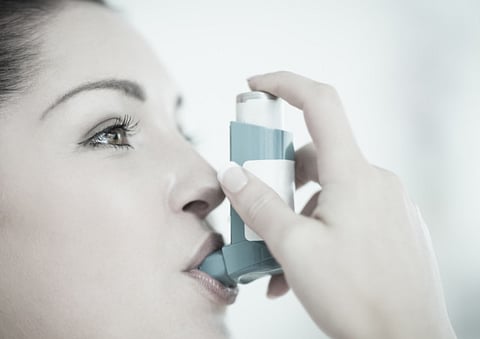Hidden hazards
Air conditioners help us stay cool, but can they also trigger medical conditions?

As the summer intensifies, we all look to air conditioners (ACs)to beat the heat. Apart from lowering the temperature, ACs also reduce the moisture content in the air, resulting in a drier indoor climate.
However, in the past couple of decades, a growing body of research has suggested that air conditioning can trigger a variety of medical conditions.
According to the US Environmental Protection Agency (EPA), air within homes and other buildings can be more polluted than the outdoor air in even the largest and most industrialised cities. Microbial growth in air-conditioning systems not only pollutes indoor air but also increases risks of complex health issues.
While in the UAE, we cannot reduce the usage of ACs owing to the sweltering heat, we can at least pay attention to the maintenance of units to prevent a number of illnesses.
Asthma
Studies have shown that an air-conditioned environment is good for patients suffering from asthma as ACs maintain an indoor environment free from dust, allergens and germs. However, if units are not cleaned regularly, dust, bacteria, pollen and mould accumulated in the filters can severely exacerbate the symptoms.
Maintaining good air quality in your home and offices is an important aspect of asthma management, say experts. Dr Rajendran Nayar, GP, at UAE-based iCare Clinic, says the build-up of dust mites in air-conditioning filters can lower its ability to remove moisture and cool down a space. Dirty air filters can cause dust and other airborne bacteria to recirculate in a building.
“Get your AC serviced at least once a year,” says Dr Mukesh Batra of the homeopathic clinic Dr. Batra’s. He also says it is critical to assess the overall condition of the unit from time to time to ensure that it is performing efficiently. Also ensure that the coolant is pure and at a high level.
Dry skin
Heat and humidity in the summer not only deplete glucose levels in our bodies, but sometimes spell serious trouble for our skin as well. Since we spend prolonged hours in an air-conditioned environment, dermatologists suggest that we must incorporate adequate moisturising into our daily skincare routine.
“It is important to know that prolonged use of the air conditioner causes more harm than good for our skin. The natural moisturising ability of the skin drops due to constant dryness and it can cause itchiness in some cases,” says Dr Nathalie Domloj, Dermatologist, Medcare Hospital. “Use skin toners, creams and moisturisers to keep the skin nourished. Maintain the elasticity of the skin or it can easily develop wrinkles and the other signs of ageing.”
Moisture mists are also an effective way to hydrate your skin at regular intervals throughout the day. They can be applied over make-up if you spend long hours in an air-conditioned environment.
Heart disease
Hot weather increases the risk of heart attacks. Although anyone can develop heat exhaustion, doctors say people who suffer from heart disease are at a higher risk of developing a heatstroke. “Chest pains and irregular heartbeat are triggered by extreme temperatures. Excessive sweating can also lead to fatigue and weakness. It can even cause dehydration,” says Dr Samer Mohammad Kaaka, Specialist Cardiologist, Medcare Hospital.
Air conditioning is good if the temperature is always kept between 21 and 25 degree Celsius. A report published online in the journal Epidemiology, says communities with higher central air conditioning have fewer people who are hospitalised for heart and circulatory problems related to air pollution
Muscular aches
Sudden changes in temperature can aggravate muscle pain and stiffness. “Many skyscrapers simply don’t allow us to open windows to bring in some fresh air. The lack of oxygen not only has a huge impact on our respiratory system but it can also cause fatigue and aches in our muscles,” says Mira Culic, Physiotherapist at KUUR Rehabilitation, Dubai.
During summer our bodies also get exposed to a great difference in temperature and humidity between indoors and outdoors. It adversely impacts our blood supply. “The hot air and high humidity can cause vasodilatation — widening of blood vessels — resulting in a quicker and larger blood supply to the muscles and other living tissues,” says Culic. ■



